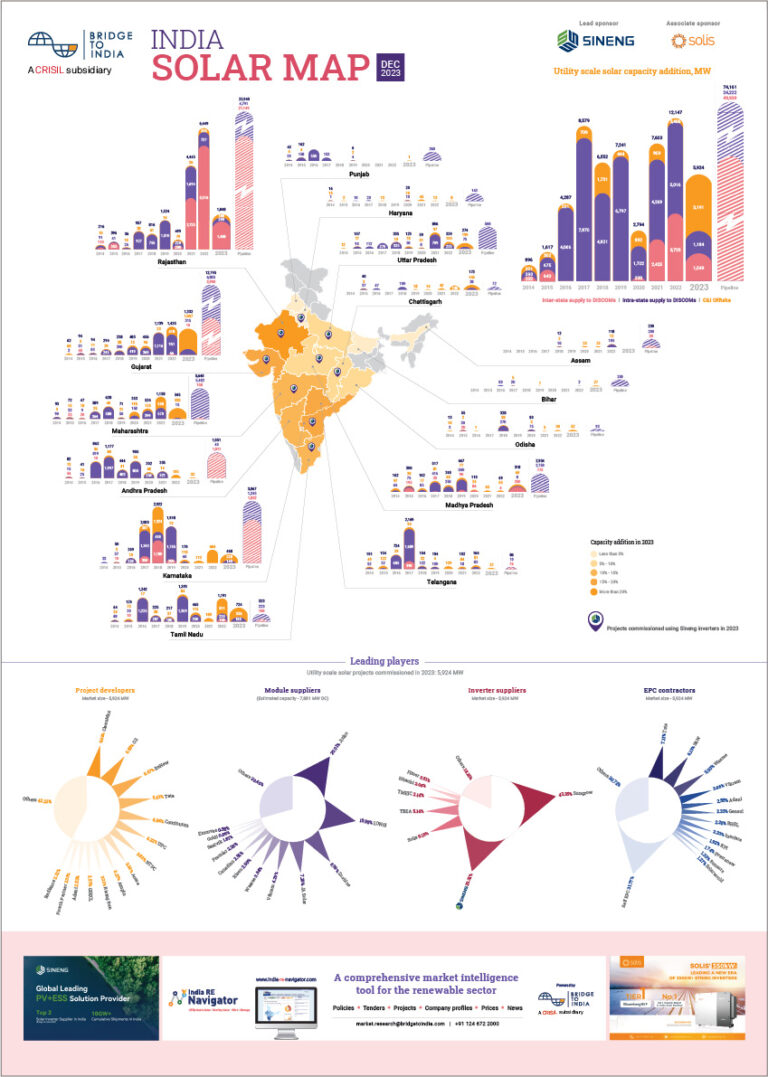The Indian government has launched a momentous demonetisation drive to weed out black money and clean up the economy (refer). We have often heard gossip about some of the black money, estimated to be close to INR 30 trillion (USD 440 billion) or about 20% of Indian GDP, finding its way into the Indian solar sector and possibly explaining some of the overly aggressive bidding behaviour in solar projects. It is impossible to ascertain veracity of such claims but the sector seems to have its share of other unethical practices. Other commonly heard chatter is that some project developers over-estimate project costs to draw down more debt and reduce their equity contribution.
- We do not believe that demonetization will have any material impact on the Indian renewable sector as most leading project developers are backed by reputable Indian and international sponsors with robust corporate governance practices;
- Indian lenders can help in curbing unethical practices in the sector by improving their risk assessment capability and tightening credit criteria;
- Poor risk assessment and documentation capability of Indian lenders poses one of the most underestimated challenges for the sector;
By some accounts, some project developers reduce their actual equity contribution to as low as 5-10% of total project cost through over-invoicing. This allows the developers to stretch their meagre equity capital and build a bigger project pipeline. Despite competitive pricing, the developers can meet key cash flow metrics such as DSCR, LLCR etc by making optimistic assumptions for power generation and input costs. Some developers are also believed to willingly compromise project quality to achieve the same outcome.
The reason such practices seemingly thrive is the lax due diligence standards of Indian lenders, particularly public sector banks and financial institutions. Instead of carrying out rigorous risk assessment and due diligence, these lenders typically rely on comfort from non-project assets, which can come in the form of implicit or explicit sponsor support or other collateral.
We believe that poor risk assessment and due diligence capability of Indian lenders is one of the most under estimated challenges facing the sector. In other sectors such as thermal power generation, roads and steel, this problem has led to large distressed bank portfolios and eventually a liquidity drought. Project lenders can bring a lot of external scrutiny and discipline but despite increasing concerns about quality of banking sector portfolio, there doesn’t unfortunately seem to have been any material improvement in lending practices.
Going back to the current demonetisation drive of the Indian government, we do not believe that it will have any material impact on the Indian renewable sector. But sector malpractices such as over-invoicing and deliberate compromises in project execution need to be stamped out to ensure consistent availability of capital for the sector. Indian lenders can play an important role here by improving their risk assessment capability and tightening credit criteria.












